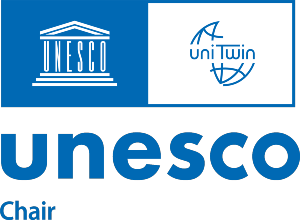News & Events
Lunchtime Webinar Series: Complexity Theory for better Child Protection & Welfare and Public Services
Date Released: 25 January 2024
UNESCO Child and Family Research Centre
In Association with the
Institute for Lifecourse and Society
University of Galway
Lunchtime Webinar Series
Title: Complexity Theory for better Public Services
Complexity is a feature of modern public service provision. Rather than fear and seek to simplify it, we need to harness complexity. This webinar series explores complexity theory and related aspects for public service and child protection and welfare work. We aim to increase insights into how complexity theory frameworks and approaches can help practitioners, managers, leaders and academics to better understand and engage with complexity at practice, service and system levels.
Webinar 5: ‘Complexity Theory and Children’s Participation’
The task of incorporating children’s voices into institutional decision making is considered a challenge despite the widespread policy imperative to do so. Decision making is burdensome for child protection decision makers due to the number of decisions they are required to make; the dangerous nature of decisions; and the emotional imposition of those decisions. These complexities are perceived to be intensified if children’s voices are added to the decision-making process. The tendency is to try to reduce complexity , but Michail et al (2024) argue for ‘complexity absorption’, collective sharing, and multiple creative practices to incorporate the voice of children in decision-making so as to moderate the burden of child protection work.
Date and Time: Wednesday, 20th November, 2024, 1:00-200pm (GMT)
Speaker:
Samia Michail, Lecturer in Social Work at the School of Social Sciences, Western Sydney University.
Respondent:
Dr Caroline Duignan, Children and Young People’s Service’s Committee, Roscommon.
Samia Michail Biography:
Samia Michail is a Lecturer in Social Work at the School of Social Sciences, Western Sydney University. She has over 30 years of experience in human services in Australia, in direct service provision, management in the non-government sector, senior roles in government and academia across a range of universities. Samia is interested in children’s wellbeing and their participatory rights to determine that wellbeing. She uses qualitative and participatory research methodologies to highlight children and young people's lived experience and their human rights to make decisions about their own life trajectories, especially in the context of child protection. Samia’s current research is in the application of complexity theory to care and protection systems, exploring systems thinking to understand the intersections of child voice, children's rights, and service provision to safeguard children and young people.
Dr Caroline Duignan, Biography:
Dr. Caroline Duignan has coordinated Roscommon Children and Young People’s Services Committee for the last ten years. In this role, she is responsible for bringing together a broad range of statutory, community, and voluntary agencies to agree strategic actions in relation to the health and wellbeing of children and young people, ranging in age from birth to twenty-four years. She is a professionally qualified social worker and has worked in a range of social work contexts, including on duty and intake teams, and as a medical social worker. She has experience of developing, delivering and evaluating training programmes in child protection, child welfare, and family support during her time working in Workforce Learning and Development. She was recently awarded a PhD from the University of Galway. Her research explored the operation of power structures, relations, and processes within the context of strategic collaborative working towards outcomes for children and young people.







